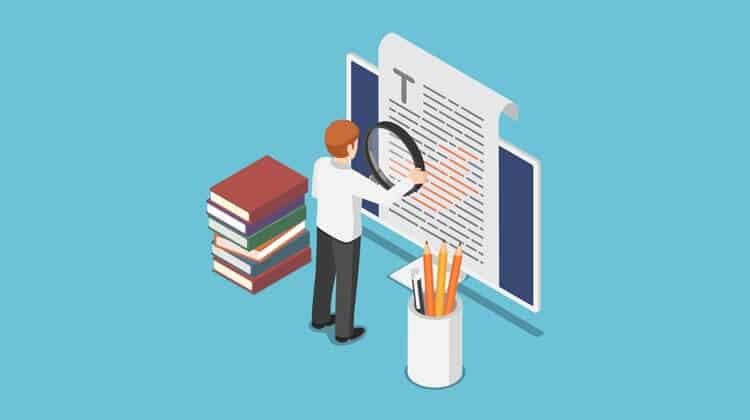10 Easy Landing Page Design Tweaks That Increase Conversions
by Aden Andrus • November 27, 2019
If you’re marketing online, odds are that you’re sending traffic to a landing page. It might your home page, a services page, a product page or a page you specifically created using a landing page builder, but you’re sending your traffic somewhere.
The best landing pages, though, are specifically designed with your target audience in mind. Your home page might be great, but is it the perfect page for that specific Google Ads campaign you just set up? Probably not.
To set your landing pages up for success, you need to think about your audience, what you’re selling and the best way to get your audience to buy. That means your landing page needs to be thoughtfully, deliberately and strategically designed.
But how, exactly, do you create that kind of page?
The good news is, you don’t have to figure it out on your own. Over the past decade or so, a ton of research has been done on exactly what you can do to improve the performance of your landing pages. Every business, target audience and landing page is unique, but there are a variety of proven tactics that you can try on almost any landing page. They won’t all improve the conversion rate of your specific page, but on average at least some of them will help almost any page convert better.
In this article, we’re going to take a look at 10 of these tweaks and how to use them to improve the performance of your landing pages—and by extension—your online marketing campaigns. Let’s get started!
10 Landing Page Design Tweaks to Try
There are a lot of ways to tweak a landing page design, but landing page optimization typically works best if you start with a few proven techniques. Let’s take a look at 10 different landing page design elements that you can play around with that have a proven track record of increasing conversion rates.
1. Improve Message Match
When someone clicks on one of your ads or a link in one of your email marketing campaigns, they have certain expectations. Your ad promised something that sounded interesting, and they expect the landing page to fulfill that expectation.
If your ad talks about personal injury litigation…but your landing page is all about divorce lawsuits, it creates confusion and frustration. Those aren’t the sorts of feelings that make people want to convert.
So, if you want to improve your landing page design, start by looking at the ads that are driving traffic to that page. If there isn’t a good match between the messaging of your ads and the messaging of your landing page, you probably need to tweak something.
2. Update Your Headline
Most of the time, your headline is the first thing people consciously think about on your landing page. While they might subconsciously process your hero shot, they actively read your headline.
If your headline is overly wordy, confusing or doesn’t directly speak to your audience’s need or pain point, they’ll assume that the rest of your landing page is the same way. Most people simply don’t have the time or patience to figure out what you’re trying to say, so if your headling isn’t clear and compelling, you may want to try reworking it.
3. Adjust Your Value Proposition
Your value proposition is the reason people buy from you…instead of the competition. It’s what makes your product or service right for your customers and better than any other option that they might have.
Depending on your business, this could be as simple as “cheapest widgets on the planet” or as complex as “by tracking every action from click-to-close, you’ll land twice as many deals with our sales software”. The important thing, however, is to sell people on why they should buy from you.
As you evaluate your value proposition, though, keep in mind that what your customers value about your product or service may not always be what you value. If you’re not sure what your customers value, try talking to your sales team or ask them yourself.
In any case, if your value proposition isn’t clear and compelling, rethinking it may be the key to improving your conversion rate.
4. Change Your CTA
When people arrive on your landing page, you’re hoping that they’ll do something—something that benefits your business. But, if it isn’t clear what that something is, people won’t do it. In other words, they won’t convert.
To make sure that people know what you want them to do next, you need to tell them with a call-to-action (CTA). However, if people can’t find your CTA or you’re using a CTA that isn’t a good match for where your customers are at, you won’t get the conversions you want.
So, depending on your business, your audience and your page, you may want to try changing where and how you call people to action. In some cases, you may need to directly ask people to convert with a big, obvious button right at the top of your page. In others, you may want to be more subtle and encourage them to read the rest of your content and then include a clear CTA further down on the page. Test out a few different approaches and see what works best for you.
5. Clarify What Happens Next
If you’re going to ask people to do something, you have to tell them what they’re going to get as a result. So, alongside your CTA, you want to make it clear what happens after people do what you want them to do.
If you’re asking them to sign up for your email list, tell them what sorts of emails they’ll be getting—and why they should want those emails. If you’re asking them to become a lead for your business, tell them what will happen next when they submit your form. If they’re getting access to your eBook, make sure they know that’s what they’re signing up for.
Depending on exactly what happens next, you can include this information in or around your form, in the description of your product or directly in your button copy. The important thing is to make it clear what people get in exchange for responding to your CTA. If that isn’t clear, you may want to revise a few things.
6. Eliminate Unnecessary Links
While it’s tempting to include links to various pages on your website, your social media profiles or other important pages, including extra links on your landing page usually hurts more than it helps. People are easily distracted, so you want to keep them focused on your landing page—not their Facebook feed. So, unless there’s a really compelling reason to include a link to another page, you may want to try removing as many extra links from your page as possible.
7. Get Rid of Distracting Elements
Along the same lines, too much information and/or too many images on a landing page can actually be a bad thing. If you’re not sure if or how a section of your page is helping your potential customers convert, there’s a good chance that it’s actually hurting your conversion rate instead. And, if that’s the case, you may want to rework or remove that section.
8. Rewrite Your Copy
A good landing page is very customer-focused. No matter how much time and money your business has spent on a particular feature or attribute, if your customers don’t care, they don’t care.
With that in mind, it’s always a good idea to read through your landing page from your customers’ point of view (or better yet, have some actual customer read through it). What aspects of your product or service do they care about? How does what you’re selling benefit them? Are you answering those questions in a clear and compelling way?
If the answer is “no”, then your copy probably isn’t doing a good job of selling your customers. You might love your copy, but if your customers don’t, it probably deserves a rewrite.
9. Change Up Your Testimonials
Your testimonials and reviews can make or break a potential sale. This is true whether your customers are reading them on your site or someone else’s.
With that in mind, it’s important to have the right testimonials on your landing page. Simply having testimonials isn’t enough. If your testimonials aren’t really helping your cause, they might actually be worse than having no testimonials.
Read through your testimonials from your customers’ perspective. Are they believable and compelling? Do they make a good case for buying from your business? If not, you may need to get rid of them or find better alternatives.
10. Shorten Your Form
As I mentioned earlier, your CTA represents a degree of risk for your potential customers. The less you ask for, the lower that perceived risk will be. So, if you don’t need a piece of information at this particular stage of your funnel, don’t ask for it!
Conclusion
Creating compelling landing pages for your online marketing campaigns can be tricky. They’re where your potential customer and clients make the ultimate decision about whether they’re going to buy or not, so if your landing pages don’t work…your marketing campaigns won’t work, either.
Fortunately, there are a lot of fairly simple landing page design tweaks that you can make to improve your conversion rates. Which tweaks from the list above will be right for your page will depend on you, your audience and your business, but they’re all good, proven tactics. Odds are, as you’ve read through this list, you had a few ideas of things to check or ways to improve. Now it’s time to put those ideas to work!
By the way, if you really want to take your landing page design to the next level, let us know here or in the comments. We’ve spent years refining our landing page design skills and we’d love to help you get the results you need.
What are some of your favorite landing page design tweaks? Have you tried any of the tactics listed above? What were your results like? Leave your thoughts in the comments below.





